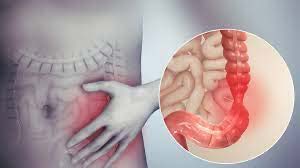Novel diagnostic biomarker for diarrhea-predominant irritable bowel syndrome (IBSD)

Tech ID
22-052
Inventors
D. Clark
Patent Status
Provisional patent filed
Stage of Research
Proof of principle data available
Contact
Sunita Asrani
Associate Director, Business Development and Copyright
Abstract
Irritable bowel syndrome (IBS) is a group of symptoms that affect your digestive system. IBS includes repeated pain in your abdomen and changes in your bowel movements which leads to discomfort. IBS affects 5% of the population globally and when combined with diarrhea as a prominent symptom (IBS-D), it is thought to be caused by increased mucosal T cells, mast cells, IEL, and increased endogenous proinflammatory cytokine production by the innate immune system and absence of histological evidence of inflammation. Despite its prevalence, there are no diagnostic methods besides invasive colonoscopies and biopsies to rule out IBD.
A McMaster research team has identified a link between IBS-D and reduced epithelial levels of a novel tolerance-signaling biomarker, CD200L, which suppresses production of proinflammatory cytokines by the innate and adaptive immune systems. Four stool extracts from IBS-D patients which were collected for the calprotectin test shows significant levels of the novel biomarker by using an ELISA assay. Therefore, alteration in the biomarker levels in IBS-D patients’ feces may reflect changes in IBS-D distinguishing it from IBD thereby making it a suitable biomarker for diagnostic testing.
Suggesting a diagnostic value of altered levels of CD200L and related CD200S and CD200R1 and R2 in fecal extracts is premature. This should only be stated when we have some preliminary data to support it. The Clinical Pathology Lab that provided the fecal extracts is unable to link that to the patients’ diagnoses, so a prospective study is required.
Applications
Possible commercial applications include a novel non-surgical diagnostic biomarker capable of distinguishing IBS-D from IBD and normal patients who do not have IBS-D.
Advantages
- Stool extracts made for the calprotectin test can be used to test for the novel biomarker to diagnose IBSD
- Expression of this biomarker can be detected simultaneously using a biochip, which may utilize ELISA technology or electrochemical detection strategies, allowing for a novel point-of-care diagnostic
- No need to subject patients to invasive procedures such as colonoscopies and biopsies
- Technology can be used to diagnose other inflammation causing diseases such as Crohn’s disease and ulcerative colitis

